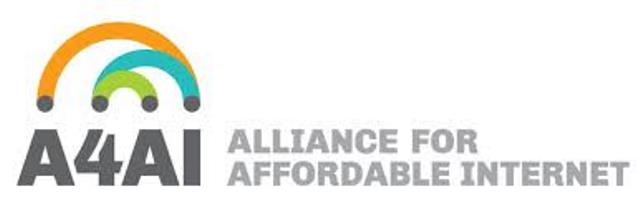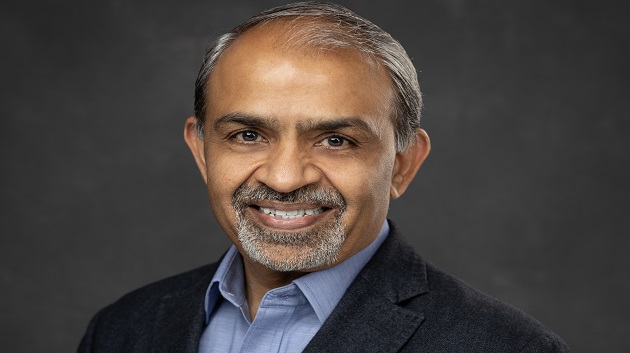Telecom
A4AI says Drop in Data Prices in Africa not Enough to Improve Access

The cost of mobile data for consumers in low and middle-income countries has fallen across all regions, driven by, among others, falling broadband prices, according to new research from the Alliance for Affordable Internet (A4AI), an initiative of the Web Foundation.
A4AI says low-income countries saw the most improvement, which is described as an historic reversal with progress of poorer countries previously lagging behind middle-income countries.
According to the research, falling broadband prices has driven affordability in certain African countries. The average cost for 1GB data as a percentage of average monthly income declined by 11%, from 5.8% of average monthly income in 2018 to 4.7% today.
In Sierra Leone, the relative cost of 1GB data tumbled from 25.9% to 9.9% after the introduction of a number of more affordable data plans by the largest operator. In Burkina Faso, reduced prices halved the cost of 1GB from 14.8% to 7.8% of monthly income. In countries such as Zimbabwe, a rise in incomes made broadband data more affordable, dropping relative cost from 19.8% to 10.1% of monthly income.
A4AI adds that declining costs meant seven new countries reached the international threshold of affordability for the first time in 2019, making internet affordable for most people, including those at below average income levels in Algeria, Bangladesh, Cabo Verde, Colombia, Ecuador, Namibia, and Paraguay.
A4AI developed the 1 for 2 affordability target – meaning 1GB of data should cost no more than 2% of average monthly income in order to be affordable for most people. To date, the target has been adopted by the UN Broadband Commission, the Economic Commission of West African States (ECOWAS), Nigeria, and Ghana.
Of the 100 countries included in this study, only 37 meet the 1 for 2 target. The total population of the remaining 63 countries tops 1 billion people, meaning over 1 billion people live in countries that do not meet the affordability target.
In Africa, currently only 9 countries meet this target: Egypt, Mauritius, Gabon, Tunisia, Botswana, Nigeria, Namibia, Algeria, and Sudan.
Because high costs keep people offline, the countries and regions with the least affordable data are also those with the fewest people connected to the internet, the A4AI claims. In Africa, where data is the least affordable at 7.1% of average monthly income, only 24% of the population is online, compared with 51% globally.
A4AI puts this in perspective and says 4 out of every 5 people living in countries with unaffordable data live somewhere in Africa.
“This demonstrates that affordability is a particularly deep challenge for the region in confronting the digital divide and requires African policymakers to step up and connect their countries into the global economy. The cost of data remains prohibitively high for many across Africa,” the organisation continues.
While progress has been made, the cost of broadband is prohibitively high.
A4AI says the average African earner must pay 7.1% of their monthly income for 1GB of data. Here average monthly income is based on GNI/capita/month for 2018. Translated to a US context, where the average earner earns US$62,850 (GNI per capita), 1GB of data would cost US$373 on average (7.1% of GNI per capita/12).
As more people, including more women, can afford to come online, national economies will grow. For every 1% increase in the number of people using mobile broadband, countries will see a 0.15% increase in GDP, according to the ITU.
Dhanaraj Thakur, Research Director of A4AI and Web Foundation, said: “Access to a meaningful internet connection means access to transformational and life-changing tools. This notable drop in costs, especially across Africa, will make it easier for millions around the world to benefit from internet access.
“While we welcome this progress, millions remain offline because they cannot afford the cost of data. Urgent action is required – failure to deliver affordable internet access will drive inequality as those offline are further pushed to the margins of society.”
The A4AI says while regions do differ and the range of policy decisions will affect the price of the internet, research shows that countries that prioritise a clear national broadband plan, invest heavily in universal and public access, and effectively and transparently allocate spectrum see the greatest gains in internet affordability.
“Governments must take urgent action to make internet access affordable for more people. By improving competition in telecommunications markets and investing in public access solutions in places like libraries, schools, and community centres, governments can lower the cost to connect and in turn bring more people online,” the organistion states.
Telecom
WhatsApp to Start Showing more Adverts in Messaging App

WhatsApp is launching three new ad features in a global roll-out across the messaging app.

The Meta-owned platform said the new ads will not be shown in the same place as people’s private chats, nor will the contents of their messages – which are encrypted – be used to decide which ads to display.
WhatsApp will instead use the country, city and language of the user, as well as how they interact with other ads and which channels they follow, to drive suggested content.
But people who have chosen to link their WhatsApp account to Facebook or Instagram will see more personalised ads.
The new ad features will appear in a section called Updates, which is a separate tab at the bottom of the app.
WhatsApp claims to have 1.5 billion users globally.
Businesses with channels will be able to choose to promote ads in the Updates section to attract new followers, and also charge a subscription to access extra content.
WhatsApp will eventually take a 10% commission of that fee, and there may also be extra costs on top of that taken at the app store level depending on the size of the business.
Firms will also be able to advertise in the form of a status update, which looks similar to an Instagram story and will link through to start a chat if clicked on.
Social media expert Matt Navarra told reporter that Meta is “laying the foundation for WhatsApp to finally become a monetisable platform at scale”.
But “monetising the periphery” of WhatsApp, while keeping personal chats private, would not be without risk for the company, he added.
This could particularly be the case in markets like the UK and Europe, he said, where the app is viewed primarily as a messaging tool with less appetite for content feeds or adverts.
“Any perception that the app is becoming noisy or Facebook-ified will spark backlash,” he said.
How does WhatsApp make money?
‘Natural extension’
It’s no coincidence that the new features bring WhatsApp more in line with Meta’s other platforms Facebook and Instagram.
“Obviously there’s overlap,” said WhatsApp boss Will Cathcart.
“We have stories on Instagram and stories on WhatsApp, and we now have a way for businesses to promote themselves in both, and we think that’s a good thing.”
He said he believed the move was a “natural extension of messaging services” and not dissimilar to features of rival apps such as Snapchat and Telegram.
For Mr Navarra, it also reflects a wider shift in the social media landscape.
“The feed is dying, public sharing is down, people are retreating into DMs and Stories in small groups,” he said.
“Meta’s trying to turn WhatsApp into a platform without users realising it and if they move too fast or it starts to feel like another ad network, people might disengage or maybe worse, distrust the app.”
Telecom
Airtel Africa Reinforces Commitment to ESG Impact while Advancing Digital, Financial Inclusion Across 14 Markets

Airtel Africa, a provider of telecommunications and mobile money services across 14 African countries, has published its Sustainability Report 2025, reaffirming its corporate purpose of transforming lives by expanding access to essential digital services, supporting inclusive economic growth, and advancing environmental stewardship throughout its operations.

In 2024/25, Airtel Africa made significant progress in bridging the digital divide, advancing financial inclusion and supporting underserved communities through strategic investment in connectivity, people, and sustainable practices.
Airtel Africa’s chief executive officer Sunil Taldar said: “This year’s achievements, from connecting 2,176 schools through the UNICEF partnership to reaching 44.6 million Airtel Money customers with near-gender parity, prove that the power of technology is a catalyst for gender balance. At Airtel Africa, we believe to not only expanding networks but we’re also building bridges to education, financial security and sustainable growth for Africa’s next generation.”
Key ESG highlights:
- Providing underserved communities with access to reliable network and connectivity:
- 2% population coverage across 14 markets (up from 80.4% in 2023/24)
- 36,159 4G infrastructure sites, including more than 15,300 in rural areas.
- Continued investment of $670m in network expansion and modernisation to boost speed, coverage and capacity.
Airtel Africa is connecting the unconnected, giving millions access to voice, data and mobile money services – driving economic opportunity and enhancing access to essential services.
- Bridging the digital divide, driving financial inclusion and addressing gender inequality
- 4 million data customers (+14.1% vs 2023/24)
- 6 million Airtel Money customers (+17.3%), with 44.2% Airtel Money customers who are women (+6.2% vs 2023/24)
- 7 million Airtel Money agents in our distribution network (+23.4% vs 2023/24)
- 2% women in the workforce across the Group (up from 28.3% vs 2023/24)
Through inclusive digital services and affordable financial products, Airtel Africa is empowering individuals and communities, particularly women, to fully participate in the digital economy.
- Unlocking potential through education and employment opportunities
- 2,176 schools connected to the internet free of charge (up from 1,201 in 2023/24)
By providing free connectivity and online resources to schools, Airtel Africa is helping young people reach their full potential. A growing agent network also supports employment and entrepreneurship opportunities across its footprint.
- Minimising the impact of our operations on the environment
- 500 off-grid sites converted to on-grid power, reducing reliance on diesel generators.
- 93% of total waste recycled (+3% vs 2023/24)
Airtel Africa is committed to reducing the impact of its operations on the environment through investment in renewable energy solutions and responsible waste management.
The Sustainability Report 2025 adheres to the Global Reporting Initiative (GRI) and GSMA telecommunications industry standards.
Telecom
ALTON Clarifies on Migration to End-User Billing for USSD Services

The Association of Licensed Telecom Operators of Nigeria (ALTON) wishes to inform the public and all mobile subscribers that the migration to the End-User Billing (EUB) model for Unstructured Supplementary Service Data (USSD) services will take effect from Wednesday, 18th June 2025.

This transition marks a significant milestone in the evolution of Nigeria’s digital financial ecosystem and is being implemented per the Determination of USSD Pricing and Services issued by the Nigerian Communications Commission (NCC).
The Determination was developed in collaboration with the Central Bank of Nigeria (CBN) and other key stakeholders to ensure a sustainable, transparent, and customer-friendly framework for USSD service delivery.
USSD services play a vital role in expanding access to financial services, particularly for unbanked and underbanked populations. However, the previous corporate billing model—where banks were billed by telecom operators—led to prolonged disputes over unpaid charges, service interruptions, and uncertainty for customers.
To address these challenges, the NCC’s 2025 Determination introduced the End-User Billing model, which allows mobile network operators to charge customers directly for USSD sessions.
To achieve the implementation of the EUB model, the CBN and NCC have stipulated that only banks that meet certain regulatory and operational conditions are permitted to migrate. One of which is the notification to customers of the billing change in advance, and to ensure that customers are fully aware of the new airtime-based charges and how they will be applied.
Accordingly, under the new billing model, USSD charges will be deducted directly from the customer’s airtime balance, not from their bank account, and each USSD session will attract a charge of ₦6.98 per 120 seconds. To enjoy the service, customers will receive a prompt to opt in and approve the charge before any deduction is made, and there will be no double billing as billing will only occur for successful sessions via airtime deductions.
ALTON wishes to reiterate that this change does not affect the availability or functionality of USSD banking services, as customers can continue to use their bank’s USSD codes as usual, provided they have sufficient airtime.
To ensure a smooth transition, ALTON advises customers to follow these support guidelines:
–For access issues (e.g., inability to dial USSD codes), contact your mobile network operator.
– For transaction-related issues (e.g., failed transfers or service errors), contact your bank’s customer service.
– Both banks and mobile network operators are required to provide responsive support and mensure that customers can access and use USSD services without disruption.
Alternative digital banking channels such as mobile apps, internet banking, and ATMs remain fully operational and available for customer convenience.
ALTON reiterates its commitment to working closely with the NCC, CBN, financial institutions, and other stakeholders to ensure that this transition is seamless, equitable, and beneficial to all parties, especially the end users.
We remain dedicated to promoting transparency, operational efficiency, and consumer protection across Nigeria’s telecommunications and digital finance sectors.

 News3 days ago
News3 days agoWhy I am vying for AFRINIC board seat in 2025 election – Terry Edet

 Telecom2 days ago
Telecom2 days agoGSMA, Mobile Industry Call for Strengthened Action to Advance Child Online Protection in Africa

 E-Financial3 days ago
E-Financial3 days agoFidelity Bank ED, Kevin Ugwuoke takes over as President of Risk Managers Association

 Telecom3 days ago
Telecom3 days agoCrypto Exchange MEXC Rolls Out P2P Support for Naira, Birr, and Rupee

 News2 days ago
News2 days agoDigital Africa Global Consult, NDPC Partner on Ground-Breaking “Nigeria Data Challenge” Initiative

 Telecom21 hours ago
Telecom21 hours agoALTON Clarifies on Migration to End-User Billing for USSD Services

 General News2 days ago
General News2 days agoTD Africa, HP Strengthen Partnership to Advance Africa’s Tech Ecosystem

 General News3 days ago
General News3 days agoAirtel Concludes Nationwide Environment Week with Market Clean-Up by Employees



























